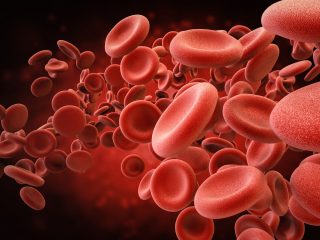Every two seconds, someone in the U.S. needs blood and a single donation can potentially save up to three lives, according to the American Red Cross. And due to the impact of COVID-19, there is an urgent need for blood donations and plenty of safe donation sites statewide.
The need for donations is high right now, and every donation helps. As a bonus, there are also some health benefits for donors.
1. You get a quick, mini checkup.
Before you’re considered eligible to donate, you must first complete a simple physical exam and blood test. It measures your temperature, pulse, blood pressure and more. A lab will test your blood for more than a dozen different infectious diseases, including HIV or West Nile virus. If anything comes back positive, you’ll know right away.
This is no reason to skip your annual checkup with your primary care doctor or other health provider, of course. But it’s another way to identify possible health concerns: like blood pressure issues or low blood counts that you can ask your doctor about as a follow up. Remember, you should never donate blood if you think you might actually be sick or have been exposed to HIV or another virus.
2. It can help keep your iron levels balanced.
Iron is a mineral the body needs to produce red blood cells. Healthy adults usually have about 5 grams of iron at a time. Too much iron can be harmful to your blood vessels, and could ultimately increase your risk for heart attack or stroke, or even mess with organ function. When you donate blood, you lose about a quarter of a gram of iron per unit, which gets replenished by your nutrition after you donate. Experts say regulating your iron levels through blood donation is a good thing.
However, for those who suffer from anemia, which is lack of red blood cells or hemoglobin (most commonly due to an iron deficiency), it’s best not to give blood until the issue is regulated. The same goes for anyone with a potential iron deficiency.

3. It can make your blood flow better.
Donating blood repeatedly could result in fewer arterial blockages and better blood flow. Since regular blood donors tend to lead healthier lifestyles than the general population, they’re less likely to suffer from heart attacks, stroke or cancer. In fact, the American Journal of Epidemiology found that blood donors are 88% less likely to have a heart attack.
4. It positively impacts your mental wellbeing.
Doing good for others feels good. And with the potential to help save up to three lives every time you donate, knowing that you’re making a difference and helping others can relieve stress—boosting your mood. This positive impact on your wellbeing could even lead to a longer life, according to one Aging Psychology study. It found that those who volunteered to do good for others regularly had a reduced risk of mortality.
The best benefit of all when it comes to donating blood is to help save lives. The Red Cross says the need for blood is never-ending. So this National Blood Donor Month, and all year long, think of the lives that could benefit from your donation. And as a bonus: you get to enjoy added health benefits too. Learn even more about donating and find a blood drive near you here.


